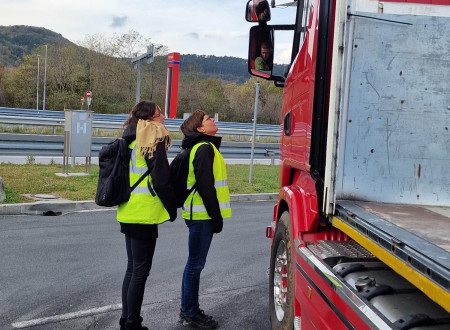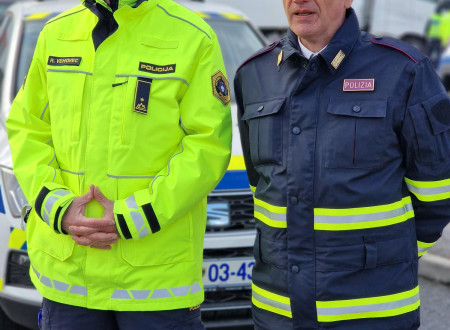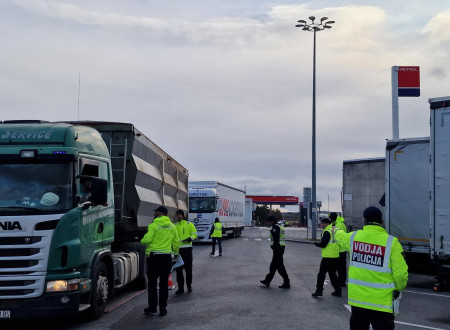Truck drivers and busses in focus in joint inspection
The presence of representatives from the Italian Police, including a ROADPOL (European Roads Policing Network) representative, the European Association of Traffic Police, the Croatian Police, representatives from the Italian and Croatian Traffic Inspectorates, as well as a representative from the European Labour Authority (ELA), further strengthened the international networking of supervisory authorities, enhancing the effectiveness and consistency of the controls. The inspections took place at the Povir motorway rest area in the direction of Italy.
Monitoring Compliance with Road Traffic Rules, Social Legislation, Vehicle Roadworthiness, and International Passenger Transport
The control measures focused on ensuring compliance with social legislation, including the integrity of data, driving times, breaks and rest periods, mobile workers' working hours, and the proper use of tachographs and driver cards. Inspectors also assessed the roadworthiness of vehicles and verified international road passenger transport operations, checking licence conditions, timetables, and itineraries.
Additionally, in-depth inspections were carried out regarding working conditions, particularly focusing on the employment and posting of drivers within the sector.
Cooperation Between Institutions Ensures Consistent Implementation of Labour and Social Rights Obligations
Katja Čoh-Kragolnik, Chief Inspector of the Labour Inspectorate, emphasized:
"Today, at the Povirje checkpoint, an intensified international inspection of freight vehicles and buses took place. The inspection involved the Police, the Labour Inspectorate, the Financial Administration, and the Infrastructure Inspectorate. The participation of Italian and Croatian representatives, as well as representatives from the European Labour Authority, further strengthened international cooperation among supervisory authorities, enhancing the effectiveness and consistency of controls."
She added:
"Such collaboration enables coordinated action among different authorities and provides a more comprehensive overview of compliance with social and labour legislation. By pooling the expertise and competences of various supervisory services, we can more effectively detect and address infringements, promoting fairer and safer working conditions."
During these inspections, the Labour Inspectorate focuses on monitoring compliance with legal requirements, including the payment of monthly wages, holiday bonuses, and allowances for work in special conditions. Inspectors also oversee adherence to working time regulations and ensure compliance with the rules on the posting of drivers, in line with the Law on the Cross-Border Provision of Services.
"Mutual cooperation and the sharing of experience between institutions significantly enhance efficiency and ensure that labour and social rights obligations are implemented uniformly and consistently," concluded Chief Inspector Katja Čoh-Kragolnik.




